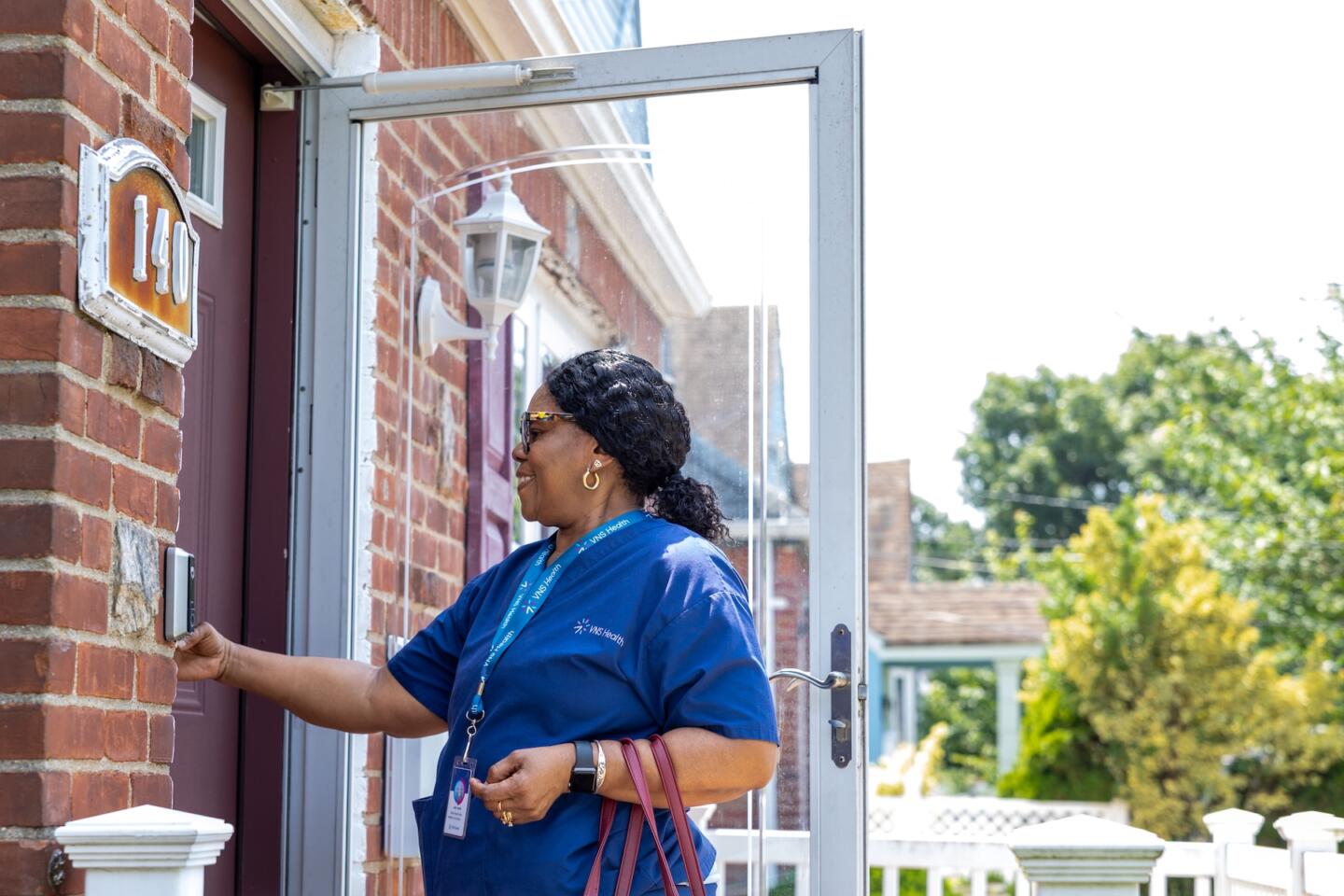Going the Full 100% for a Cognitively Impaired Client

When home health aide Jane Budd began caring for a new client suffering from dementia, she knew it would be a challenge. The client, Sandra*, lives at home in Nassau County with round-the-clock support from VNS Health Plans. Like many people with dementia, she goes through periods when she is agitated and can be aggressive, lashing out verbally.
Caring for a client with cognitive impairment is never easy—it requires experience, understanding and emotional resilience. The way Jane connects with Sandra and manages her dementia is a wonderful example of how our HHAs draw on their skills and VNS Health’s Core Values of Empathy, Agility and Integrity to navigate even their most difficult cases.
“When a client has dementia, they can be good, then suddenly not good,” says Jane. To keep agitation to a minimum, Jane uses listening and careful observation to learn each client’s unique patterns. Whether it’s a client’s sundowning, anxiousness around bathing, or sudden behavioral shifts, Jane employs patience and serene presence to maintain an atmosphere of calm.
While these techniques are all valuable, one of the most important things Jane does is to express affection to Sandra. “It can really calm the moment,” she explains. I say to her ‘I love you. What can I do for you, do you want anything?’ That helps her feel more comfortable and come back to herself.”

Jane is originally from Trinidad and Tobago, and she has been a home health aide for 20 years, joining VNS Health this past January. Jane’s compassion for others shows in the care she provides to her clients, and it has a grounding effect for Sandra. Sometimes, Sandra responds with affection. Other times, she resists. In those harder moments, Jane never forces things. She simply creates a sense of safety—for the client and for herself—and gives Sandra space.
Jane never takes the outbursts personally. Instead, she sees them as symptoms of Sandra’s illness and adjusts with care and grace. “When someone is sick, everything is more difficult,” she says.
Jane takes pride in keeping clients comfortable and safe in their homes as well as in supporting her fellow caregivers. To set herself and her colleagues up for success, she makes a point of communicating with the next aide about her client’s status and state of mind, so they know what to expect from the client that day and are never surprised. “Especially with dementia, knowing what kind of day the client is having makes all the difference,” Jane notes.
She shares these critical details privately so the client can’t hear them—unless there’s something to celebrate. Then, she speaks up in front of the client. “I like to say positive things, like, ‘she ate well, and took her medications,’ so the client hears that, too,” Jane explains. “Summing up her job, Jane adds, “With this job, you go full 100 percent, or you don’t go at all.”
* The client’s name has been changed for privacy.
